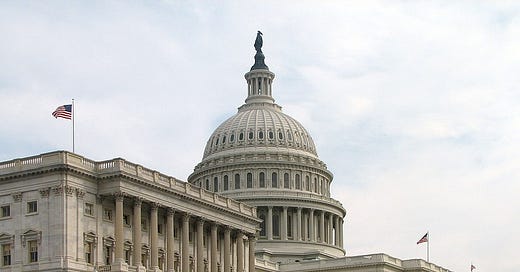How the U.S. Congress Is Threatening the Future of Christian Higher Education
"Salt and light can't be measured in dollars and cents"
In fourteen years of blogging, I’m not sure that I’ve ever encouraged readers of The Pietist Schoolman to contact their congressional representatives. But then I’ve never encountered the possibility of the U.S. Congress passing a bill that so directly threatens Christian colleges and universities like the one I work for. And since the Christian college-…
Keep reading with a 7-day free trial
Subscribe to The Pietist Schoolman to keep reading this post and get 7 days of free access to the full post archives.



